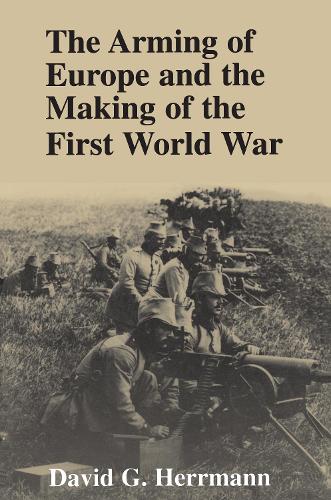
The Arming of Europe and the Making of the First World War
(Paperback)
Publishing Details
The Arming of Europe and the Making of the First World War
By (Author) David G. Herrmann
Princeton University Press
Princeton University Press
3rd June 1997
United States
Classifications
Professional and Scholarly
Non Fiction
First World War
Land forces and warfare
940.311
Physical Properties
Paperback
322
Width 197mm, Height 254mm
510g
Description
This is a study of how land-based military power influenced international affairs during the series of diplomatic crises that led up to World War I. Instead of emphasizing the naval arms race, the book draws on documentary research in military and state archives in Germany, France, Austria, England and Italy to show the effects of changes in the strength of European armies during this period. It also provides an account of how the European armies adopted the new weaponry of the 20th century in the decade before 1914, including quick-firing artillery, machine guns, motor transport and aircraft. In a narrative account that runs from the beginning of a series of international crises in 1904 until the outbreak of the war, the author points to changes in the balance of military power to explain why the war began in 1914, instead of at some other time. Russia was incapable of waging a European war after its defeat at the hands of Japan in 1904-5, but in 1912, when Russia appeared to be regaining its capacity to fight, an unprecedented land-armaments race began. Consequently, when the July crisis of 1914 developed, the atmosphere of military competition made war a far more likely outcome
Reviews
Winner of the 1996 Paul Birdsall Prize, American Historical Association "Herrmann argues that the dynamic element which upset the European balance was the change in statesmen's perceptions of the military strengths and weaknesses of their neighbors between 1904 and 1914...A good book [that] draws on evidence from French, German, Austrian, Italian, and British archives."--David French, The Times Literary Supplement "A valuable and long-overdue book... It offers a far more nuanced and sophisticated understanding of military organizations as they faced the calamity of the First World War. A first-rate piece of work."--Eliot A. Cohen, Foreign Affairs
Author Bio
David G. Herrmann is Assistant Professor of History at Tulane University.
